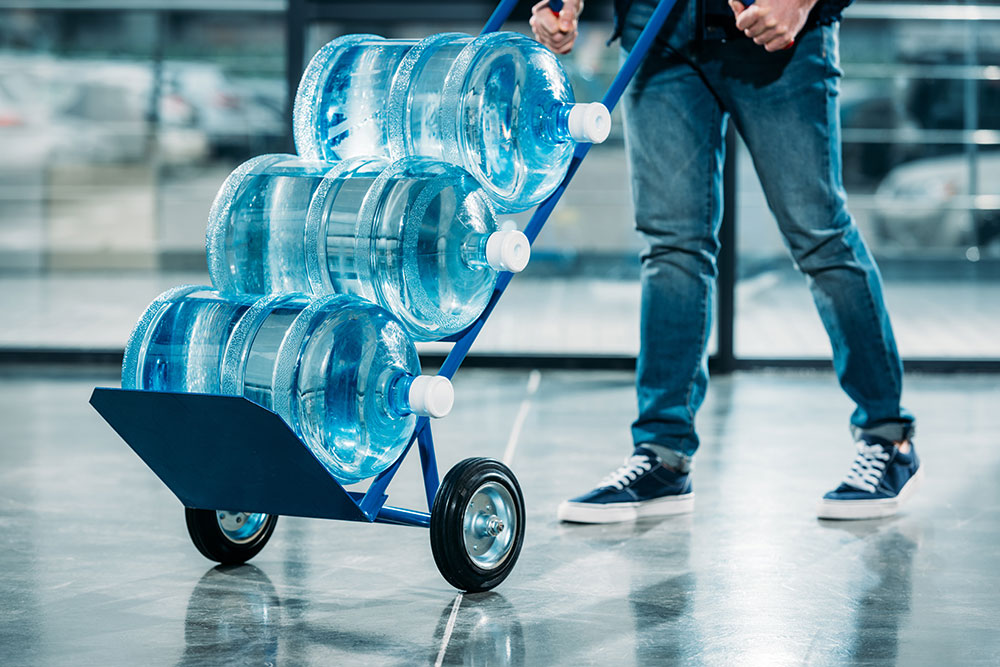
The Evolution of Water Delivery
In the digital age of 2024, the concept of Water Delivery (2024) has undergone a remarkable evolution. Gone are the days of relying solely on tap water or bulky water coolers. Today, consumers demand convenience, reliability, and sustainability in their water delivery services.
The Rise of Smart Water Delivery Solutions
With advancements in technology, smart water delivery solutions have emerged as a game-changer in the industry. These innovative systems leverage IoT (Internet of Things) technology to monitor water consumption, track inventory levels, and automatically schedule deliveries, ensuring a seamless experience for customers.
Sustainable Practices in Water Delivery
In an era marked by growing environmental awareness, sustainability has become a key focus for water delivery providers. From eco-friendly packaging materials to optimized delivery routes that minimize carbon emissions, companies are prioritizing eco-conscious practices to reduce their environmental footprint.
The Benefits of Water Delivery (2024)
Convenience and Accessibility
One of the primary advantages of Water Delivery (2024) is the convenience it offers to consumers. With just a few clicks or taps on a mobile app, customers can schedule regular deliveries of fresh, purified water directly to their homes or offices, eliminating the need to lug heavy bottles from the store.
Enhanced Hydration and Wellness
Staying properly hydrated is essential for overall health and well-being, and water delivery services play a crucial role in promoting hydration. By providing access to clean, great-tasting water, these services encourage individuals to maintain healthy hydration habits, leading to improved energy levels, cognitive function, and overall wellness.
Time and Cost Savings
In today’s fast-paced world, time is a precious commodity. Water Delivery (2024) saves consumers valuable time by eliminating the need to make frequent trips to the store to purchase bottled water. Additionally, subscription-based delivery models often offer cost savings compared to buying individual bottles, making it an economical choice for households and businesses alike.
The Future of Water Delivery: Trends and Innovations
Personalized Delivery Preferences
As technology continues to advance, we can expect to see further personalization in water delivery services. Companies may offer customizable delivery preferences, allowing customers to specify their preferred water types, delivery frequencies, and packaging sizes to suit their unique needs and preferences.
Expansion of Delivery Networks
With the increasing demand for water delivery services, providers are expanding their delivery networks to reach more consumers in urban, suburban, and rural areas. This expansion may involve the introduction of new delivery hubs, partnerships with local businesses, or the adoption of drone and autonomous vehicle delivery technologies for remote locations.
Integration with Smart Home Systems
In the era of smart homes, integration with connected devices is becoming increasingly prevalent. Water delivery services may soon integrate with smart home systems, allowing users to manage their deliveries seamlessly through voice commands or smartphone apps. This integration streamlines the user experience and enhances convenience for consumers.
Addressing Common Concerns
Water Quality and Safety
One common concern among consumers is the quality and safety of delivered water. To address this, reputable water delivery companies adhere to strict quality control measures, including regular testing for contaminants and adherence to industry standards for purification and filtration.
Environmental Impact
Another concern is the environmental impact of bottled water delivery. While single-use plastics pose a significant environmental threat, many companies are adopting sustainable practices such as using recyclable or biodegradable packaging materials and implementing bottle return or refill programs to minimize waste.
FAQs (Frequently Asked Questions)
Is the water delivered by water delivery services safe to drink?
Yes, reputable water delivery services prioritize the safety and quality of their water. They adhere to stringent purification and filtration processes to ensure that the water meets regulatory standards for drinking water quality.
How often can I expect water deliveries?
The frequency of water deliveries depends on your individual needs and preferences. Most water delivery services offer flexible delivery schedules, allowing you to choose weekly, bi-weekly, or monthly deliveries based on your consumption habits.
Can I customize my water delivery preferences?
Absolutely! Many water delivery companies offer customizable delivery options, allowing you to choose the type of water, bottle sizes, and delivery frequencies that best suit your needs.
Are there any eco-friendly options available for water delivery?
Yes, many water delivery services now offer eco-friendly packaging options, such as recyclable bottles or biodegradable materials. Additionally, some companies use electric or hybrid delivery vehicles to minimize their carbon footprint.
How can I track my water delivery?
Most water delivery services provide online portals or mobile apps where you can easily track your delivery status, manage your account preferences, and schedule future deliveries with just a few clicks.
What should I do with empty water bottles?
Many water delivery companies offer bottle return or refill programs to encourage recycling and minimize waste. Simply return your empty bottles to the delivery driver during your next scheduled delivery, or drop them off at designated collection points.
Conclusion: Embracing the Future of Water Delivery (2024)
As we look ahead to the future of Water Delivery (2024), one thing is clear: innovation and sustainability will continue to drive the industry forward. With smart technology, personalized services, and a commitment to environmental stewardship, water delivery providers are poised to meet the evolving needs of consumers while preserving precious natural resources.
